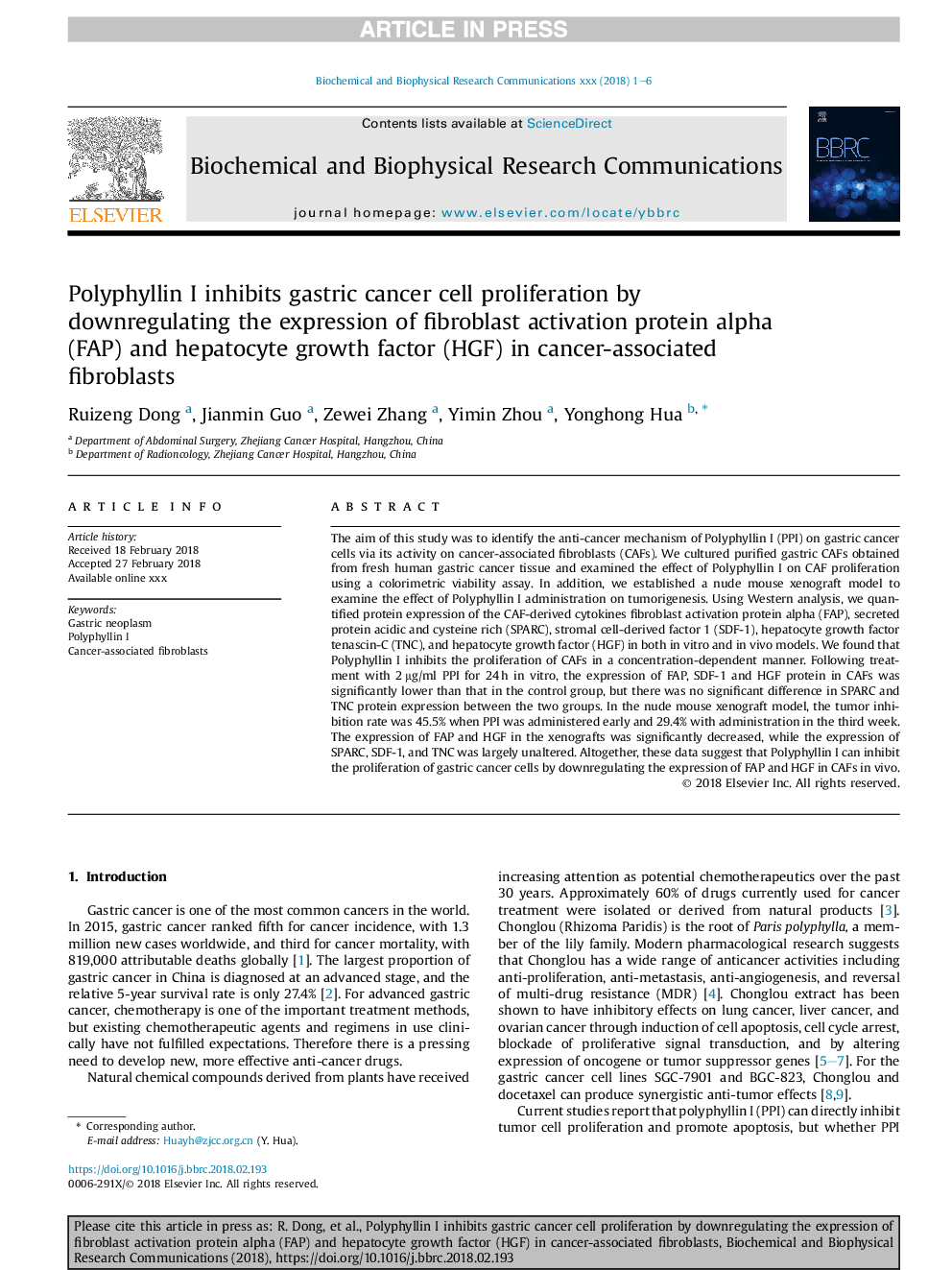| Article ID | Journal | Published Year | Pages | File Type |
|---|---|---|---|---|
| 8293862 | Biochemical and Biophysical Research Communications | 2018 | 6 Pages |
Abstract
The aim of this study was to identify the anti-cancer mechanism of Polyphyllin I (PPI) on gastric cancer cells via its activity on cancer-associated fibroblasts (CAFs). We cultured purified gastric CAFs obtained from fresh human gastric cancer tissue and examined the effect of Polyphyllin I on CAF proliferation using a colorimetric viability assay. In addition, we established a nude mouse xenograft model to examine the effect of Polyphyllin I administration on tumorigenesis. Using Western analysis, we quantified protein expression of the CAF-derived cytokines fibroblast activation protein alpha (FAP), secreted protein acidic and cysteine rich (SPARC), stromal cell-derived factor 1 (SDF-1), hepatocyte growth factor tenascin-C (TNC), and hepatocyte growth factor (HGF) in both in vitro and in vivo models. We found that Polyphyllin I inhibits the proliferation of CAFs in a concentration-dependent manner. Following treatment with 2â¯Î¼g/ml PPI for 24â¯h in vitro, the expression of FAP, SDF-1 and HGF protein in CAFs was significantly lower than that in the control group, but there was no significant difference in SPARC and TNC protein expression between the two groups. In the nude mouse xenograft model, the tumor inhibition rate was 45.5% when PPI was administered early and 29.4% with administration in the third week. The expression of FAP and HGF in the xenografts was significantly decreased, while the expression of SPARC, SDF-1, and TNC was largely unaltered. Altogether, these data suggest that Polyphyllin I can inhibit the proliferation of gastric cancer cells by downregulating the expression of FAP and HGF in CAFs in vivo.
Related Topics
Life Sciences
Biochemistry, Genetics and Molecular Biology
Biochemistry
Authors
Ruizeng Dong, Jianmin Guo, Zewei Zhang, Yimin Zhou, Yonghong Hua,
